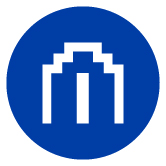
 
|

|
| Major: 3161
Catalog Year: 2023-2024
Effective Term: 2020 Fall
Last Admit Term: 2022 Summer
Award: AAS Total Credits: 62-77 CIP Code: 11.0501 |
Primary College: Glendale Community College
Initiating College: Glendale Community College
Program Availability: Not Found
Program Availability: Shared
Field of Interest: Health Sciences
Instructional Council: Allied Health (51) GPA: 2.0 |
|
SOC Code: Upon completion of this degree, students may pursue a career as:
15-1211.00 Computer Systems Analysts 15-1232.00 Computer User Support Specialists Upon completion of a bachelor`s degree, students may pursue a career as: 11-3021.00 Computer and Information Systems Managers 15-1211.01 Health Informatics Specialists 15-1251.00 Computer Programmers 15-1132.00 Software Developers, Applications 15-1242.00 Database Administrators 15-2051.01 Business Intelligence Analysts 15-1299.09 Information Technology Project Managers 15-2099.01 Bioinformatics Technicians Upon completion of a graduate degree, students may pursue a career as: 15-1221.00 Computer and Information Research Scientists 15-1299.08 Computer Systems Engineers/Architects | |
|
Program Prerequisites: None
|
|||||||||||
| Required Courses | |||||||||||
|---|---|---|---|---|---|---|---|---|---|---|---|
BPC110 Computer Usage and Applications (3) OR | Credits: 40-49 | ||||||||||
| Restricted Electives | |||
|---|---|---|---|
None | Credits: None | ||
| General Electives | |||
|---|---|---|---|
None | Credits: None | ||
| General Education Requirements | |||
|---|---|---|---|
| General Education Requirement | Credits: 22-28 | ||
| General Education Core | Credits: 12-18 | ||
| First-Year Composition | Credits: 6 | ||
| + ENG101 First-Year Composition (3) OR
+ ENG107 First-Year Composition for ESL (3) AND + ENG102 First-Year Composition (3) OR + ENG108 First-Year Composition for ESL (3) 6 | |||
| Oral Communication | Credits: 3 | ||
| Any approved general education course from the Oral Communication (COM) area.
COM225 Public Speaking is recommended for students transferring to Northern Arizona University (NAU). | |||
| Critical Reading | Credits: 0-3 | ||
| + CRE101 College Critical Reading and Critical Thinking (3) OR
Equivalent as indicated by assessment 0-3 | |||
| Mathematics | Credits: 3-6 | ||
| + Any approved general education course in the Mathematics area 3-6
Recommend MAT14+ or MAT15+ for students seeking university transfer | |||
| General Education Distribution | Credits: 10 | ||
| Humanities, Arts and Design | Credits: 3 | ||
| Any approved general education course from the Humanities, Arts and Design [HU] area. | |||
| Social-Behavioral Sciences | Credits: 3 | ||
| Any approved general education course from the Social-Behavioral Sciences [SB] area. | |||
| Natural Sciences | Credits: 4 | ||
| Any approved general education course from the Natural Sciences (Quantitative) [SQ] area or the Natural Sciences (General) [SG] area. | |||
| Learning Outcomes | |||
|---|---|---|---|
| 1. Demonstrate knowledge of healthcare operations, technologies, systems, and medical terminology. (HCC130, HCC145, HCC145AA, HCC146, HTM150, HTM200, HTM270, (CRE))
2. Communicate and collaborate effectively within diverse healthcare settings using a variety of communication modalities. (HTM150, HTM270, HTM280, (COM), [FYC], [HU], [SB]) 3. Integrate social, ethical, and legal responsibility in accordance with the standards of the profession. (HTM150, HTM270, (CRE), [HU], [SB]) 4. Use graphics software to diagram complex healthcare information technology (IT) processes. (BPC110, CIS105, CIS116, (COM), [FYC], [MA], [SQ], [SG]) 5. Use database applications to install, model and create new databases, manage and authenticate users, store procedures, and develop backup/restore strategies. (BPC110, CIS105, CIS117DM, CIS276DA, CIS276DB, [MA]) 6. Use project management tools and software development life cycle (SDLC) principles to manage complex healthcare IT projects. (CIS224, HTM250, (CRE), [SG], [SQ]) 7. Create user-friendly web-based applications using the appropriate coding, collaboration and content management technologies. (CIS133DA, CIS165++, CIS166++, (COM), [HU], [MA]) 8. Design, develop, test, and troubleshoot object-oriented programs using an appropriate programming language. (CIS150AB, CIS156, CIS159, CIS162AC, CIS162AD, CIS163AA, (CRE)) 9. Utilize interoperability standards to meet state and federal regulations. (HTM200) 10. Employ current and emerging technologies in Data Analytics, Artificial Intelligence (AI) and Machine Learning to improve healthcare outcomes. (BPC110, CIS105, CIS156, HTM230, (CRE), [HU], [MA], [SB], [SG], [SQ]) 11. Synthesize healthcare technology program skills sets, concepts, and critical thinking to solve relevant and current healthcare IT challenges. (BPC110, CIS105, HTM270, HTM280, (CRE)) | |||
|
+ indicates course has prerequisites and/or corequisites.
++ indicates that any suffixed course may be selected. MCCCD Governing Board Approval Date: December 10, 2019 | |||